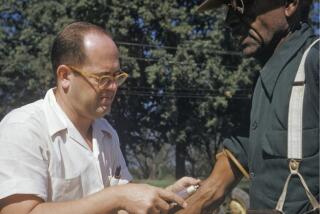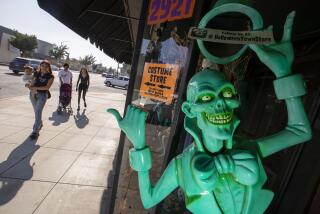Making Monsters of Ordinary Men : Keeping prepositions and infinitives in their place signals respect for rules of grammarand of life.
Toward the end of the meeting, one of my fellow board members leaned across the table, sighed, and told me “The media have made such monsters of black men that I find myself afraid when I meet up with two black men on the street.” This was sad to her, she said; she did not like living that way.
The context through me off. My radar was not operational, since we were not working on any issue related to African American men and their image in our culture. “I don’t experience that,” I said, “probably because my environments are usually protected.” I am shorter than most people, so I’ve developed the habit of caution. I work at a guarded law school, shop in malls, also usually guarded, and I endeavor not to be out alone in unsafe places at night.
“Oh, it’s not only at night,” the woman said. “I am afraid when I encounter two black men during the day, even.” And this, she averred, was the fault of media distortions of the nature of black men.
I told her that I had more reason in my life to worry about the actions and reactions of white men. In my adulthood, few black men have been in much of a position to make determinations about my professional or political future. I got defensive, and then I didn’t have the conversation that I wish I would have had with her. If my antennae had been receiving, I would have started by asking her whether she could make any distinctions among African American men.
“Do you worry about the grocery checker, or the UPS delivery guy? Do you hide behind your curtains when the mail carrier nears your door? Do you fear young white men as a result of the Oklahoma City bombing, or what Jeffrey Dahmer did?” This could have opened the door to wondering how she could allow whatever negative media imagery she has encountered about African American men to overwhelm her real world experience. I will be the first to excoriate television producers for not presenting sufficient variety in the imaging of African American men, or men of any color. But there is much space between the dearth of healthy imagery and the willingness to accept and categorize African American men as monsters in whose presence you must start with fear. As much as the nightly news gives us negative images of black men committing mayhem, certainly this woman has had access to the images of former Assembly speaker Willie Brown or the NBA playoffs at which African American men dominated, with nary a handgun in sight. Could she have missed the fact that Stan Sanders and Nate Holden did political battle here in Los Angeles, without pillaging, without threatening anyone. Then there are the police officers, sworn to protect and to serve, many of whom are African Americans. Start with Chief Willie Williams, perhaps.
Which would have led to the question “Could your reaction and response to African American men be convenient? Even a bit lazy?” After all, she implied that she was frightened of all black men, whether they were in Armani suits or jogging pants, whether they were scowling at the number on their beeper or whistling Vivaldi as they approached. If her house was on fire, would she call 911 and request that the firefighters not be African American men? What made the general man on the street different from her fellow board member, a retired Urban League official?
I might have gotten to the looming question: “Would you be afraid of my husband?” I have no idea what it is like to be him: a well-educated, well-spoken, decent man in whom some see a molester or a murderer. It can’t be easily digestible, knowing that working hard to obtain college and law school degrees, paying your bills on time and not cheating on your taxes won’t exempt you from being suspect in the eyes of some woman you would not have noticed had she not made a point of clutching her purse as you approached.
I might have said all that, had I been focused on the subtext of her heartfelt expression of wariness. This decent woman told me something that was obviously weighing on her mind, and quite possibly, she thought that a dialogue with me was possible. In an ideal world, it might have been. There, I would not have radar for benign bigotry. But here in the real world, I am tired of educating and explaining and being exemplary. I want a measure of humanity attributed to me, and to African American men, that will prevent nice white women from beginning conversations with “The men of your race frighten men, in broad daylight, when I encounter them on the street.”


